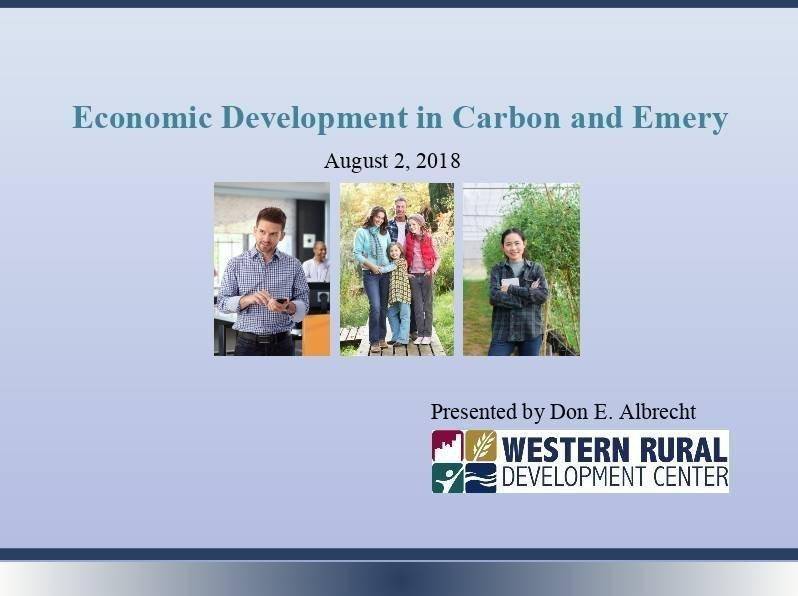BEAR Press Release
The Area Sector Analysis Project (ASAP) for Carbon and Emery counties is moving into its formal final steps the Castle Country Business Expansion and Retention Executive Board and some members of the Pro-Carbon Board were told on Thursday as Don Albrecht and Marion Bentley from Western Rural Development Center at Utah State University spoke to the board.
In April and May, initial surveys were collected from over 200 residents and business leaders in the area to establish a baseline for just what kind of new businesses might not only be desirable to place in the two-county area, but also which ones people thought would be the most beneficial.
Then, in June through July and into August, the answers that came back were refined by further surveys of individuals in the area. Out of dozens of selections, the groups of those kinds of enterprises have now been whittled down to 10 categories, some of which are not surprising, while a few are.
Those 10 categories include, in order of preference based on past surveys, electric power generation, transmission, and distribution; scientific research and development services; navigational, measuring, electromedical and control instruments manufacturing; resin, synthetic rubber and artificial fibers and filaments manufacturing; electrical equipment manufacturing; scheduled air transportation; warehousing and storage; natural gas distribution; and pipeline transportation of natural gas.
Some of the final categories that are being explored are activities that are already done in the area while others either have little presence or a small presence at the present time.
Each of these areas are represented by a code called a NAICS code (North American Industry Classification System). Obviously, these are general areas that could represent many different kinds of industries. The code is the standard used by federal statistical agencies in classifying business establishments for the purpose of collecting, analyzing and publishing statistical data related to the U.S. business economy.
Presently, the findings are represented by a four number code, which designates that general area of business. But within the register, the codes have numbers added to them, which drills them down further to specific industries. Finding within those codes businesses that would be both desirable and beneficial to the area is the next area of work that needs to be done. BEAR Executive Boardmembers and two of the Pro-Carbon Board have taken on assignments to research and explore these areas for businesses that could come to the area in association with those groups.
Once that is established, then the economic emphasis could be on those types of specific businesses for recruitment by the area’s economic boards and representatives. But just as important, state officials who work in the field of business recruitment will know what residents in the area would like to see come to their counties. This would make it easier for them to point businesses to rural areas that want specific industries, knowing their intentions would be well received.
Castle Country is the last rural area in the state to be surveyed in this manner. The project to do these surveys is a cooperative effort between Utah State University, Idaho State University and the University of Nevada-Reno, where the projects analysis services and data are located. Their centers are assisting rural communities across the West by applying economic, environmental and social factors to community economic development planning.

